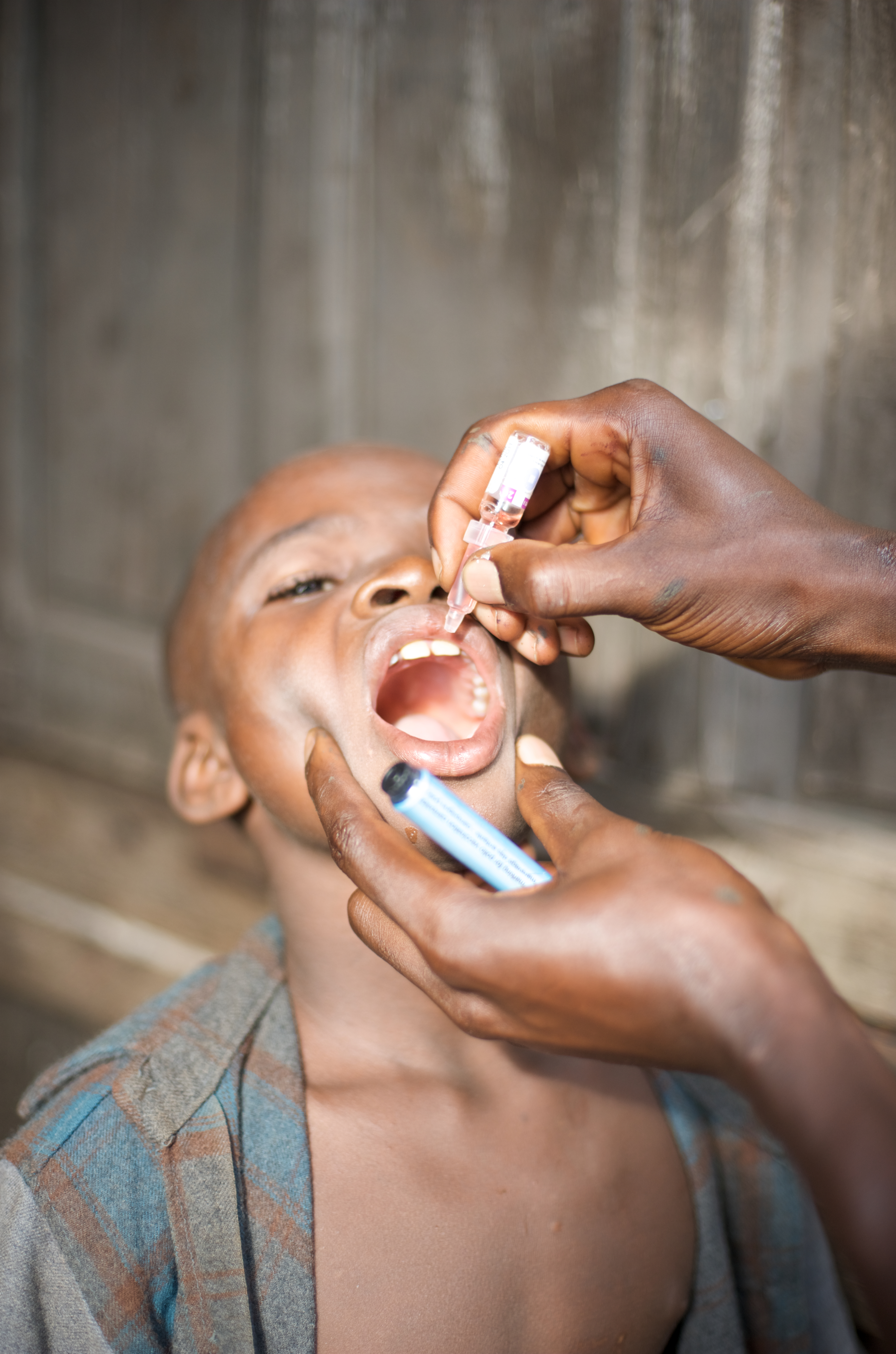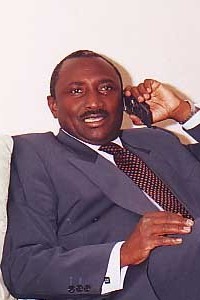|
Clinique Ambroise Paré
The Clinique Ambroise Paré is a hospital in Conakry, Guinea, is considered to be the best hospital in the country. Details The hospital is named after Ambroise Paré, the father of French surgery. It is privately owned, providing better care than the government hospitals Ignace Deen and Donka but not as high a standard as in Europe or North America. Ambroise Paré has an ambulance, and is equipped for surgery. It is located on North Corniche next to USAID, southwest of the Conakry Botanical Garden. History In September 2009 a rally at a city stadium in protest against the military junta was violently broken up, with dozens of people being killed by security forces. Former prime ministers Cellou Dalein Diallo and Sidya Touré were injured, and taken to Ambroise Paré. However, soldiers removed them from the clinic and took them to the Alpha Yaya Diallo camp, the junta's headquarters. See also *Health in Guinea Guinea faces a number of ongoing health challenges. The Hu ... [...More Info...] [...Related Items...] OR: [Wikipedia] [Google] [Baidu] |
Conakry
Conakry (; ; sus, Kɔnakiri; N’ko: ߞߐߣߊߞߙߌ߫, Fula: ''Konaakiri'' 𞤑𞤮𞤲𞤢𞥄𞤳𞤭𞤪𞤭) is the capital and largest city of Guinea. A port city, it serves as the economic, financial and cultural centre of Guinea. Its population as of the 2014 Guinea census was 1,660,973. The current population of Conakry is difficult to ascertain, although the U.S. Department of State's Bureau of African Affairs has estimated it at two million, accounting for one-sixth of the entire population of the country. History Conakry was originally settled on the small Tombo Island and later spread to the neighboring Kaloum Peninsula, a stretch of land wide. The city was essentially founded after Britain ceded the island to France in 1887. In 1885 the two island villages of Conakry and Boubinet had fewer than 500 inhabitants. Conakry became the capital of French Guinea in 1904 and prospered as an export port, particularly after a railway (now closed) to Kankan opened ... [...More Info...] [...Related Items...] OR: [Wikipedia] [Google] [Baidu] |
Hospital
A hospital is a health care institution providing patient treatment with specialized health science and auxiliary healthcare staff and medical equipment. The best-known type of hospital is the general hospital, which typically has an emergency department to treat urgent health problems ranging from fire and accident victims to a sudden illness. A district hospital typically is the major health care facility in its region, with many beds for intensive care and additional beds for patients who need long-term care. Specialized hospitals include trauma centers, rehabilitation hospitals, children's hospitals, seniors' ( geriatric) hospitals, and hospitals for dealing with specific medical needs such as psychiatric treatment (see psychiatric hospital) and certain disease categories. Specialized hospitals can help reduce health care costs compared to general hospitals. Hospitals are classified as general, specialty, or government depending on the sources of income received. A ... [...More Info...] [...Related Items...] OR: [Wikipedia] [Google] [Baidu] |
Guinea
Guinea ( ),, fuf, 𞤘𞤭𞤲𞤫, italic=no, Gine, wo, Gine, nqo, ߖߌ߬ߣߍ߫, bm, Gine officially the Republic of Guinea (french: République de Guinée), is a coastal country in West Africa. It borders the Atlantic Ocean to the west, Guinea-Bissau to the northwest, Senegal to the north, Mali to the northeast, Cote d'Ivoire to the southeast, and Sierra Leone and Liberia to the south. It is sometimes referred to as Guinea-Conakry after its capital Conakry, to distinguish it from other territories in the eponymous region such as Guinea-Bissau and Equatorial Guinea. It has a population of million and an area of . Formerly French Guinea, it achieved independence in 1958. It has a history of military coups d'état.Nicholas Bariyo & Benoit FauconMilitary Faction Stages Coup in Mineral-Rich Guinea ''Wall Street Journal'' (September 5, 2021).Krista LarsonEXPLAINER: Why is history repeating itself in Guinea's coup? Associated Press (September 7, 2021).Danielle Paq ... [...More Info...] [...Related Items...] OR: [Wikipedia] [Google] [Baidu] |
Ambroise Paré
Ambroise Paré (c. 1510 – 20 December 1590) was a French barber surgeon who served in that role for kings Henry II, Francis II, Charles IX and Henry III. He is considered one of the fathers of surgery and modern forensic pathology and a pioneer in surgical techniques and battlefield medicine, especially in the treatment of wounds. He was also an anatomist, invented several surgical instruments, and was a member of the Parisian barber surgeon guild. In his personal notes about the care he delivered to Captain Rat, in the Piémont campaign (1537–1538), Paré wrote: ''Je le pansai, Dieu le guérit'' ("I bandaged him and God healed him"). This epitomises a philosophy that he used throughout his career. These words, inscribed on his statue in Laval, are reminiscent of the Latin adage ''medicus curat, natura sanat''. Early life Paré was born in 1510 in Bourg-Hersent, near Laval, then part of the province of Maine, in northwestern France. As a child he watched, and was fir ... [...More Info...] [...Related Items...] OR: [Wikipedia] [Google] [Baidu] |
Ignace Deen Hospital
The Ignace Deen Hospital (Hôpital Ignace Deen) is a hospital in Conakry, Guinea built during the colonial era. The hospital is situated next to the National Museum. A report in 2011 described the conditions as squalid, with poor quality of care. Since 2017, in collaboration with scientists from the United States and Denmark, Ignace Deen Hospital has acted as a regional hub of neurological research, Quality of care A travel guide describes the hospital as "not very reliable". A February 2011 report said the hospital had dilapidated infrastructure, poor sanitation, stifling heat, stench, lack of water and electricity, lack of drugs and maintenance. A bribe was required to gain admittance. There were few doctors. Wards were crowded, infested by bed bugs and mosquitoes. The toilets were clogged and there was an acute shortage of drinking water, which relatives of the patients were expected to supply. After a serious traffic accident killed two people and seriously injured three other ... [...More Info...] [...Related Items...] OR: [Wikipedia] [Google] [Baidu] |
Donka Hospital
The Donka Hospital is a publicly owned hospital in Conakry, Guinea. It has inadequate facilities to handle demand, and many Guineans cannot afford its services. More than once in recent years the hospital has had to deal with a major influx of patients wounded in civil disturbances. Facilities Donka is a University Teaching Hospital, one of two in Conakry, the other being Ignace Deen Hospital. It is located to the northeast of the Conakry Grand Mosque and across the main road from the infamous Camp Boiro. It is the largest public hospital in the country, built in 1959 just before independence. The Soviet Union assisted in its construction. Sewage is treated by autonomous wastewater treatment plants funded by the World Bank. The hospital receives priority supply of electricity, but blackouts were frequent in 2006 when oil prices soared. The hospital did not have enough money to pay for fuel for the main back-up power generator. The Orthopedic Department was established in February ... [...More Info...] [...Related Items...] OR: [Wikipedia] [Google] [Baidu] |
Conakry Botanical Garden
Conakry Botanical Garden is a botanical garden in Conakry, Guinea. It is located in the Camayenne part of the city, with the Ambroise Paré Hospital to the south and Conakry Grand Mosque The Conakry Grand Mosque (french: Grande mosquée de Conakry / Mosquée Fayçal) is a mosque in Conakry, Guinea, located east of the Conakry Botanical Garden and beside the Donka Hospital. The mosque was built under Ahmed Sékou Touré with ... to the north. It is noted for its kapok trees. See also * List of buildings and structures in Guinea References Buildings and structures in Conakry {{Guinea-struct-stub ... [...More Info...] [...Related Items...] OR: [Wikipedia] [Google] [Baidu] |
Cellou Dalein Diallo
Cellou Dalein Diallo (3 February 1952 , Xinhua, 14 December 2004 .) is a Guinean economist and politician who was from 2004 to 2006. Previously he held a succession of ministerial posts in the government from 1996 to 2004. Currently he is President of the (UFDG), an opposition party. He was a candidate in the |
Sidya Touré
Sidya Touré (born 1945) is a Guinean politician. He was Prime Minister of Guinea from 1996 to 1999 and is currently the President of the Union of Republican Forces (UFR), an opposition party. Prime minister Having previously been in exile in Côte d'Ivoire, Touré, who was considered a "reform-minded technocrat", was appointed as Prime Minister by President Lansana ContéPaul Melly"Guinea: Early Warning Analysis" Writenet, August 2003, page 1. on 9 July 1996, becoming Guinea's first Prime Minister since 1984. Touré's appointment, which followed a coup attempt in February 1996, was characterized as part of an effort by Conté to pursue reforms. However, after a few years of Touré's reformist policies, Conté appeared to change course and dismissed Touré, who was succeeded by Lamine Sidimé on 8 March 1999. Opposition leader After leaving the government, Touré became an opposition leader; he is currently the President of the UFR. [...More Info...] [...Related Items...] OR: [Wikipedia] [Google] [Baidu] |
Health In Guinea
Guinea faces a number of ongoing health challenges. The Human Rights Measurement Initiative finds that Guinea is fulfilling 58.6% of what it should be fulfilling for the right to health based on its level of income. When looking at the right to health with respect to children, Guinea achieves 76.5% of what is expected based on its current income. In regards to the right to health amongst the adult population, the country achieves only 82.3% of what is expected based on the nation's level of income. Guinea falls into the "very bad" category when evaluating the right to reproductive health because the nation is fulfilling only 17.0% of what the nation is expected to achieve based on the resources (income) it has available. Health infrastructure Guinea has been reorganizing its health system since the Bamako Initiative of 1987 formally promoted community-based methods of increasing accessibility of drugs and health care services to the population, in part by implementing user fees ... [...More Info...] [...Related Items...] OR: [Wikipedia] [Google] [Baidu] |
Hospitals In Guinea
A hospital is a health care institution providing patient treatment with specialized health science and auxiliary healthcare staff and medical equipment. The best-known type of hospital is the general hospital, which typically has an emergency department to treat urgent health problems ranging from fire and accident victims to a sudden illness. A district hospital typically is the major health care facility in its region, with many beds for intensive care and additional beds for patients who need long-term care. Specialized hospitals include trauma centers, rehabilitation hospitals, children's hospitals, seniors' (geriatric) hospitals, and hospitals for dealing with specific medical needs such as psychiatric treatment (see psychiatric hospital) and certain disease categories. Specialized hospitals can help reduce health care costs compared to general hospitals. Hospitals are classified as general, specialty, or government depending on the sources of income received. A teaching ... [...More Info...] [...Related Items...] OR: [Wikipedia] [Google] [Baidu] |







.gif)